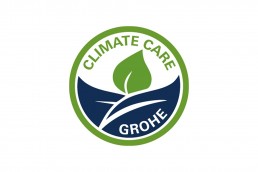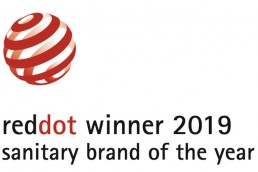In 2018, leading bathroom manufacturer Grohe launched an initiative to replace plastic in product packaging with more sustainable alternatives. To date, approximately 10 million items of product packaging made from plastic have been eliminated, and by 2021, this figure is to be significantly increased to up to 35 million.
The transition to plastic-free packaging is a process that involves all production sites equally. In addition to identifying the most commonly used plastic packaging, new, more sustainable alternative materials must be researched, tested, and then implemented. “Offering plastic-free packaging is part of our comprehensive 360-degree sustainability approach, which equally includes employees, suppliers, customers, processes, products and our contribution to society. For us, as a brand, it is important to constantly review existing processes from the perspective of sustainability,” says Thomas Fuhr, COO Fittings Lixil International and CEO of Grohe. “The mission to achieve entirely plastic-free product packaging by 2021 is an important step in our contribution to the fight against the global plastic waste problem.”
In addition to its new and continued efforts, Grohe’s existing sustainable product solutions continue to play a crucial part in helping consumers to reduce their single-use plastic consumption. The Grohe Blue Home offers still, semi-sparkling and sparkling water directly from the kitchen tap – filtered and chilled to the optimum drinking temperature. A family of four who replace their purchases of bottled filtered or sparkling water with a Grohe Blue Home system can on average save up to 800 plastic bottles per year.
Grohe’s goal of reducing plastic waste is also strengthened by its cooperation with Marcella Hansch, founder of Pacific Garbage Screening. Both partners share the vision of achieving clean water by reducing plastic waste in oceans and rivers. The trained architect is developing a water platform that collects plastic waste in rivers before it is flushed into the oceans. Alongside Grohe’s financial support, both partners are committed to raising public awareness on plastic waste and how to achieve a more sustainable lifestyle.
Together with its initiative against plastic waste, the brand is pursuing a clearly defined carbon strategy; its production has been carbon-neutral since 1st April 2020. To this end, Grohe converted all Lixil EMENA production plants to green electricity in July 2019. The company also offsets so far unavoidable CO2 emissions through compensation projects and supports activities that are based on rigorous standards, such as the Gold Standard, developed under the leadership of the WWF.
Related Posts
22 April 2020
Grohe achieves carbon-neutral production
13 January 2020
Grohe aims for carbon-neutral production by 2020
1 August 2019



